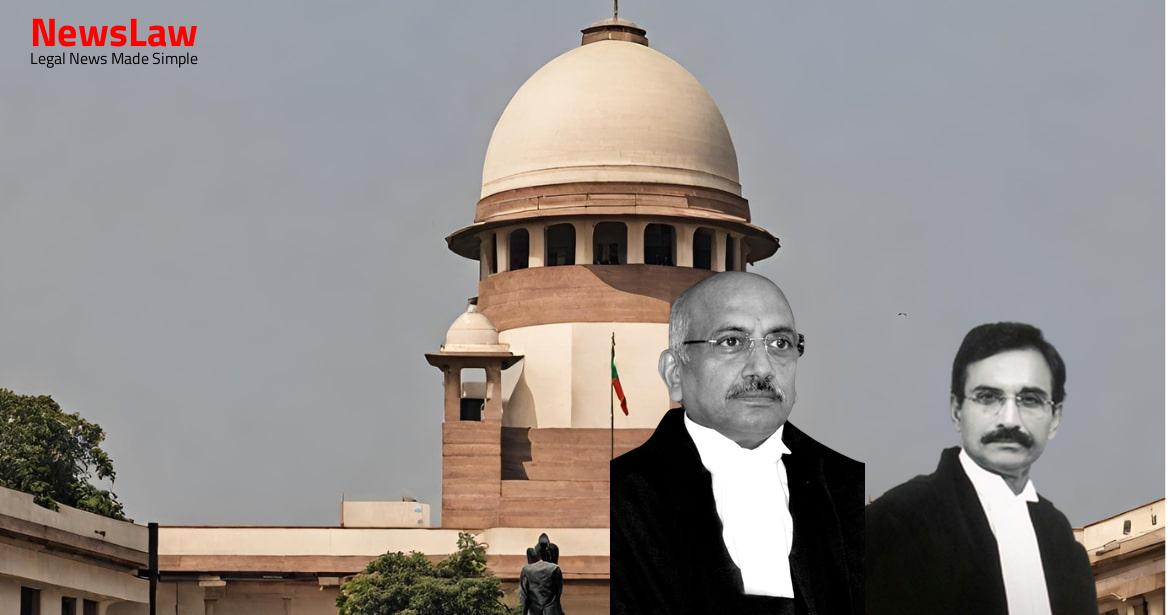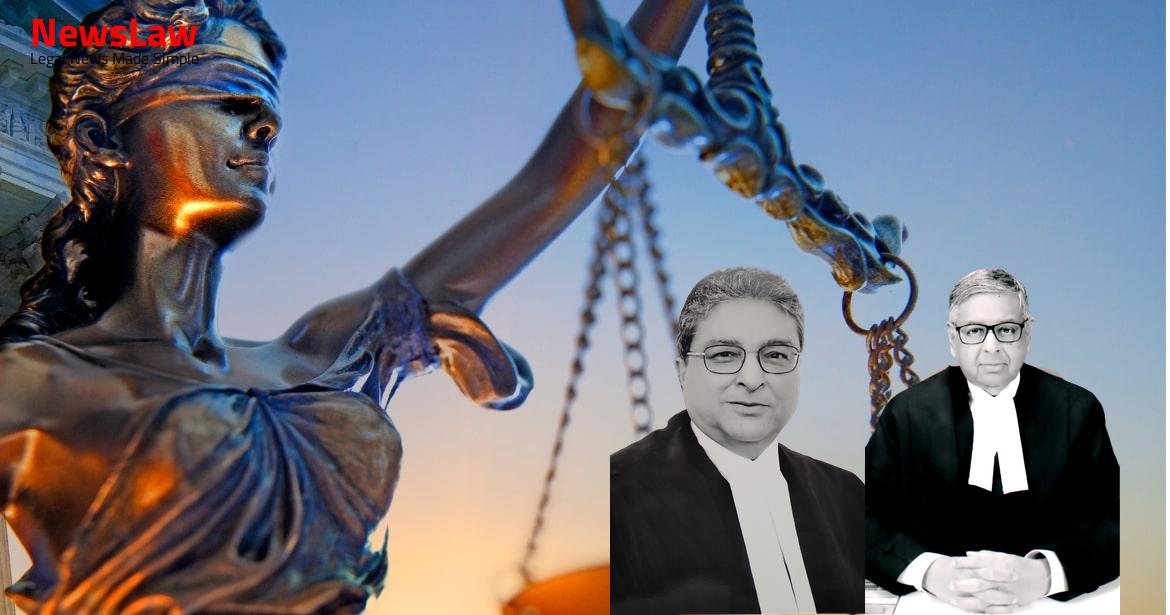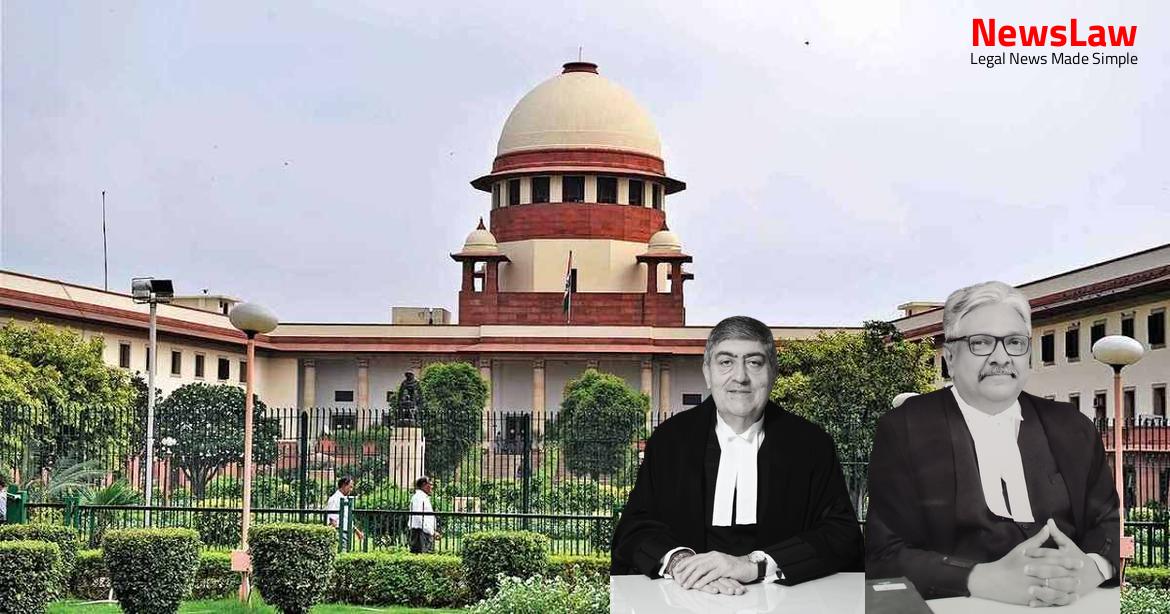In a significant legal ruling, the Supreme Court of India delved into the intricacies of bail cancellation and legal grounds in a case involving the conflict between the High Court and the Sessions Court. The judgment sheds light on the factors that should be weighed when deciding to cancel bail, ensuring a fair and just legal process for all parties involved. #LegalCase #BailCancellation #SupremeCourt
Facts
- The charge sheet filed against the Appellants did not attribute any specific overt act to the accused, except for A6 who allegedly strangulated the deceased with a towel.
- The Principal Sessions Judge granted bail to the Appellants with certain conditions, including regular appearance before the police station and restrictions on leaving the territorial jurisdiction.
- A petition for cancellation of bail under Section 439(2) Cr. P.C. was filed by Respondent No.2 before the High Court of Telangana.
- The complaint lodged by Respondent No.2 resulted in the registration of an FIR under Sections 148, 120 B, 302 read with Section 149 of the IPC at Karimnagar Rural Police Station.
- The incident stemmed from a dispute related to fishing activities in the villages, where the Appellants were not allowed to fish due to membership cancellation in the Fishermen Co-operative Society.
- Previous conflicts between the Appellants and Respondent No.2’s husband had resulted in a criminal case being registered against the Appellants three years prior to the incident.
- On 19.04.2019, the husband of Respondent No.2 was attacked and succumbed to injuries inflicted by the Appellants, who allegedly planned the attack collectively.
- The case has been committed for trial, and the bail conditions set by the Sessions Judge are currently in effect for the Appellants.
- High Court noted that trial Court did not consider the criminal antecedents of the Appellants
- High Court found that the Appellants threatened witnesses after being released on bail
- High Court allowed cancellation of bail as material on record was not considered by Principal Sessions Judge
- Appellants argued that there were no compelling reasons for High Court to interfere with Sessions Court’s bail order
Also Read: DHFL Moratorium: Depositor Rights & RBI Intervention
Analysis
- The Sessions Court’s order granting bail was not perverse and showed awareness that the investigation was complete with no likelihood of tampering with evidence.
- The complaint alleging witness tampering by the Appellants was found to be vague and lacked details of their involvement.
- It was not claimed that irrelevant factors influenced the bail decision by the Sessions Court.
- Factors considered for bail include the gravity of the crime, character of evidence, accused’s position with respect to victim/witnesses, likelihood of fleeing or repeating the offense, possibility of tampering with evidence/witnesses, and obstructing justice.
- The Court should not undertake meticulous examination of the evidence collected by the police for the purpose of bail.
- In the case of Raghubir Singh v. State of Bihar, bail can be cancelled under various circumstances such as misuse of liberty, interference with investigation, tampering with evidence or witnesses, threatening witnesses, or fleeing to another country.
- Other grounds for bail cancellation include attempts to go underground, becoming unavailable to the investigating agency, or placing oneself beyond the reach of the surety.
- The listed grounds are illustrative and not exhaustive.
- High Court’s decision to cancel the bail of the Appellants was incorrect
- Examined submissions and material on record to reach the decision
- Appellants’ bail should not have been cancelled
Also Read: State of Karnataka v. [Respondent]
Decision
- The Appeals have been allowed and the judgment of the High Court has been set aside.
- The orders passed by the Sessions Judge granting bail were not considered perverse.
Also Read: Legal Analysis of Entrance Exam Regulations in AYUSH Courses
Case Title: MYAKALA DHARMARAJAM Vs. THE STATE OF TELANGANA (2020 INSC 8)
Case Number: Crl.A. No.-001974-001975 / 2019



